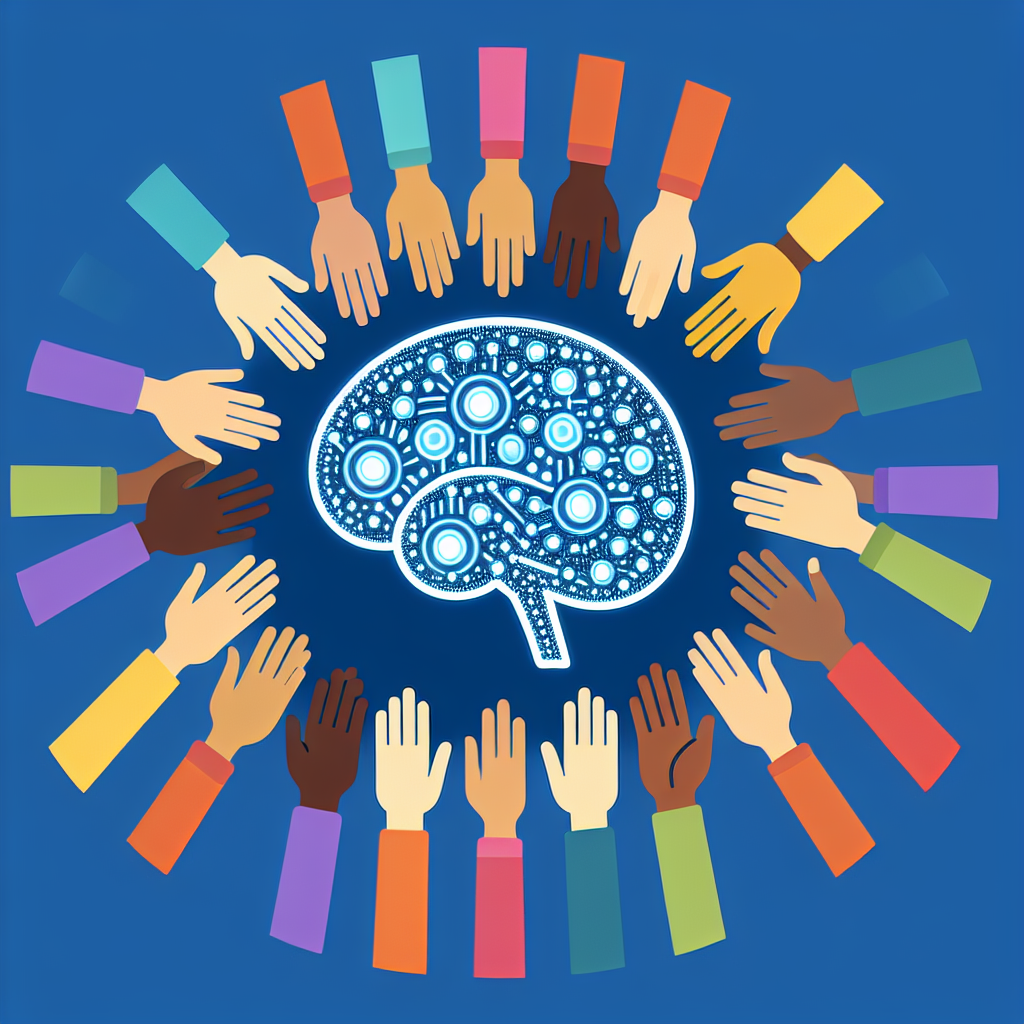In recent years, Artificial Intelligence (AI) has become an increasingly prevalent and powerful technology that is transforming various industries and aspects of our daily lives. From chatbots and virtual assistants to self-driving cars and predictive analytics, AI has the potential to revolutionize how we work, communicate, and make decisions. However, as AI continues to advance, there is growing concern about the potential for bias, discrimination, and inequality in its use.
The democratization of AI is a movement that seeks to make AI more accessible and inclusive for all individuals, regardless of their background or resources. By democratizing AI, we can ensure that the benefits of this technology are shared more equitably and that its potential to improve society is maximized. In this article, we will explore the importance of democratizing AI, the challenges and opportunities it presents, and how we can work towards a more inclusive and equal future with AI.
Importance of Democratizing AI
AI has the power to transform industries, improve efficiency, and enhance decision-making processes. However, the benefits of AI have not been equally distributed across society. In many cases, AI technologies have been developed and deployed in a way that exacerbates existing inequalities and biases. For example, AI algorithms used in hiring processes have been found to discriminate against certain groups based on factors like race, gender, or socioeconomic status.
By democratizing AI, we can address these issues and ensure that AI benefits all individuals, regardless of their background. Democratizing AI means making AI technology more accessible, transparent, and accountable. It involves promoting diversity and inclusion in AI development and deployment, as well as empowering individuals to understand and engage with AI technologies.
Challenges and Opportunities
Democratizing AI presents a number of challenges, including issues related to data bias, algorithmic transparency, and digital literacy. Many AI systems are trained on biased data sets, which can perpetuate existing inequalities and discrimination. In addition, the complex and opaque nature of AI algorithms can make it difficult to understand how decisions are being made and to hold AI systems accountable for their actions.
However, democratizing AI also presents a number of opportunities to address these challenges. By promoting diversity and inclusion in AI development teams, we can help mitigate bias and ensure that AI systems are designed with a wide range of perspectives in mind. By increasing transparency and explainability in AI algorithms, we can improve trust and accountability in AI systems. And by investing in digital literacy and education, we can empower individuals to engage with AI technologies in a meaningful way.
How to Democratize AI
There are a number of ways that we can work towards democratizing AI and promoting equality and inclusion in its use. One key step is to promote diversity and inclusion in AI development teams. By ensuring that AI teams are representative of the diverse communities they serve, we can help mitigate bias and ensure that AI technologies are designed with a wide range of perspectives in mind.
Another important step is to increase transparency and explainability in AI algorithms. By making AI systems more transparent and understandable, we can improve trust and accountability in their use. This includes developing tools and techniques to explain how decisions are being made by AI systems and to ensure that these decisions are fair and unbiased.
Finally, we must invest in digital literacy and education to empower individuals to engage with AI technologies in a meaningful way. By providing individuals with the skills and knowledge they need to understand and interact with AI systems, we can ensure that AI benefits all members of society, regardless of their background or resources.
FAQs
Q: What is AI democratization?
A: AI democratization is a movement that seeks to make AI more accessible and inclusive for all individuals, regardless of their background or resources. By democratizing AI, we can ensure that the benefits of this technology are shared more equitably and that its potential to improve society is maximized.
Q: Why is AI democratization important?
A: AI democratization is important because it can help address issues of bias, discrimination, and inequality in AI technologies. By making AI more accessible, transparent, and accountable, we can ensure that AI benefits all individuals, regardless of their background.
Q: What are some challenges in democratizing AI?
A: Some challenges in democratizing AI include issues related to data bias, algorithmic transparency, and digital literacy. Many AI systems are trained on biased data sets, which can perpetuate existing inequalities and discrimination. In addition, the complex and opaque nature of AI algorithms can make it difficult to understand how decisions are being made and to hold AI systems accountable for their actions.
Q: How can we work towards democratizing AI?
A: We can work towards democratizing AI by promoting diversity and inclusion in AI development teams, increasing transparency and explainability in AI algorithms, and investing in digital literacy and education to empower individuals to engage with AI technologies in a meaningful way. By taking these steps, we can promote equality and inclusion in the use of AI technologies.
In conclusion, democratizing AI is a critical step towards promoting equality and inclusion in the use of AI technologies. By making AI more accessible, transparent, and accountable, we can ensure that the benefits of AI are shared more equitably and that its potential to improve society is maximized. By promoting diversity and inclusion in AI development teams, increasing transparency and explainability in AI algorithms, and investing in digital literacy and education, we can work towards a more inclusive and equal future with AI.

